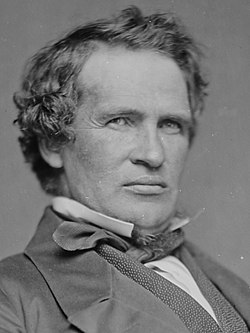August 7, 1854 | |||||||||||||||||
| |||||||||||||||||
 County results Grimes: 50–60% 60–70% 70–80% >90% Bates: 50–60% 60–70% 70–80% 80–90% >90% No Data/Votes: | |||||||||||||||||
| |||||||||||||||||
| Elections in Iowa |
|---|
 |
The 1854 Iowa gubernatorial election was held on August 7, 1854, in order to elect the Governor of Iowa. Whig nominee James W. Grimes defeated Democratic nominee Curtis Bates. [1]

